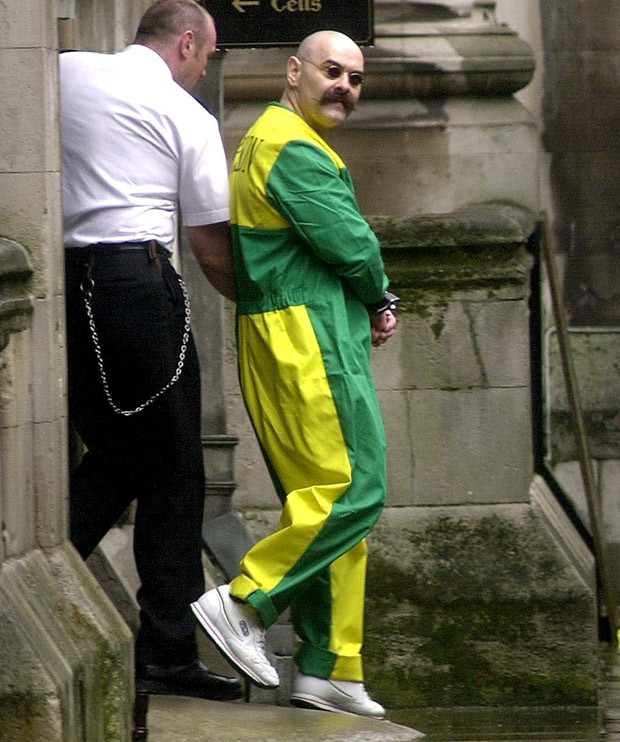One of Britain’s most notorious prisoners has begun a legal action challenging the ban preventing parole hearings being held in public. Charles Salvador, previously known as Charles Bronson, has been in prison for most of the last 45 years and wants to waive his right to privacy and for his next parole hearing to be held in ‘the full public glare’.
Salvador’s legal team argues that the parole board rules’ blanket ban on public hearings is unlawful and, if successful, the challenge would force the government to change the regime. In particular, they argue that Parole Board Rules 2019, rule 15(3) requiring parole board hearings to be held in private offends the well-established principle of open justice as well as being in breach of the article six right to a fair and public hearing.
‘It is hoped that by providing Charles Salvador with the right to apply for a public parole hearing the public can gain a proper understanding of the parole process and it will push the secretary of state for justice to fully respect the independence of the Parole Board,’ comments his solicitor Dean Kingham of Swain and Co Solicitors.
The challenge is being brought by the same legal team, Dean Kingham together with barrister Matt Stanbury of Garden Court North, behind the recent challenge over concerns about the independence of the Criminal Cases Review Commission (the Gary Warner case – as reported on the Justice Gap here).
The government counters that open justice requirements are met by the possibility for a parole board to allow for observers and for a summary of a decision to be published. That falls ‘significantly short’ of what would be expected under the principles of open justice, the prisoner’s lawyers argue.
 ‘Charles Bronson’ became a fixture of the tabloid press over the years and is frequently referred to as ‘Britain’s most violent prison’. He now insists that he is a changed man. He changed his name in 2014 in tribute to the artist Salvador Dali.
‘Charles Bronson’ became a fixture of the tabloid press over the years and is frequently referred to as ‘Britain’s most violent prison’. He now insists that he is a changed man. He changed his name in 2014 in tribute to the artist Salvador Dali.
‘I am sick of being behind closed doors and 20 foot walls,’ he says. ‘The public need to see and hear that I am no longer a violent man and I have proven it and will continue to.’
He is currently held at HMP Woodhill in a high security close supervision centre designed for the most disruptive and dangerous prisoners. He was sentenced to life in February 2000 after taking hostage a teacher at HMP Hull for 44 hours. In November 2018 he was acquitted at Leeds Crown Court of attempting to cause grievous bodily harm with intent to a governor at HMP Wakefield. He represented himself.
His case has been reviewed by the parole board six times since his minimum term expired in February 2003, most recently in November 2017. According to his legal team, Salvador has been progressing well at Woodhill and has been recommended for a move to Whitemoor which is viewed as ‘the last step before removal’.
However, the prisoner has clashed with the Ministry of Justice over problems with access to correspondence including wedding photos after he married the late actress Paula Williamson. The prison is currently photocopying all mail received as part of a clampdown on drugs like Spice being sprayed on to letters.
According to Dean Kingham, his client is ‘currently at the mercy of the secretary of state for justice’. ‘He is relying on the minister to progress him out of the close supervision centre and give him the ability to argue his risk of future violence has reduced,’ he continues. ‘Unfortunately, the actions of the secretary of state most recently suggests the he will be very difficult towards him.’
Salvador intends to use his wedding photographs in his art. ‘Mr. Salvador is extremely anti-drugs and drug use is not linked to his risk of violence,’ Kingham adds.
The 2019 parole board regime was introduced in the wake of the furore over the Parole Board’s decision to release serial sex offender John Worboys. The latest legal challenge cites the judicial review of the Worboy decision (R (DSD) v Parole Board [2019] QB 285) and Salvador’s lawyers argue that the regime does not contemplate cases where the prisoner waives their own privacy rights. They believe that there is considerable and legitimate public interest in better understanding how a prisoner could be locked up for 45 years as well as how the parole board takes decisions in his case.
A post-Worboys government review considered the possibility of some hearings being heard in public. It concluded that concerns over public access could ‘compromise the confidence of witnesses and panel members to be as open and candid as a closed hearing allows’ and that safety and privacy concerns might ‘undermine the ability of prisoners to resettle successfully and safely’.







